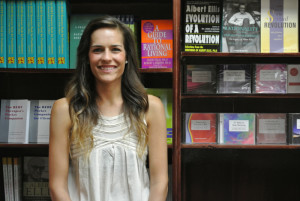by Shannon O’Neill, M.A.
Many would agree that our primary objective in life is to become the best version of ourselves. In order to achieve this, individuals attempt to avoid uncomfortable emotions (e.g., anger, depression, anxiety) by making calculated choices that promote happiness. Yet, if an individual is reluctant to experience present moments of discomfort, how will they be able to appreciate future moments of happiness? This does not mean we should actively seek out painful experiences; however, suppressing the discomfort that is already present will only allow unwanted experiences to continue occurring. I believe the pursuit towards a better self can begin once an individual acknowledges moments of unpleasantness and recognizes that they would like to change.
I’m sure most have learned through personal experience that the decision to change does not always equate to lasting alterations. Unfortunately, people relapse even when they have the greatest intentions not to. One of the biggest challenges specific to change is figuring out how to respond to these setbacks when they arise. Acknowledging change as a fluctuating process rather than a definitive accomplishment can assist an individual in approaching the journey with more compassion. By placing so much weight on future success and waiting for these goals to define one’s happiness, an individual is unable to acknowledge the subtle change that is taking place in the present moment.
It is understandable to think that not achieving a specific goal equates to being a failure. However, we know from previous posts that the term acceptance entails letting go of the struggle against reality and recognizing what is in a given moment. Once an individual makes room for compassion and allows the present struggle to be part of the overall process, change is then occurring.

